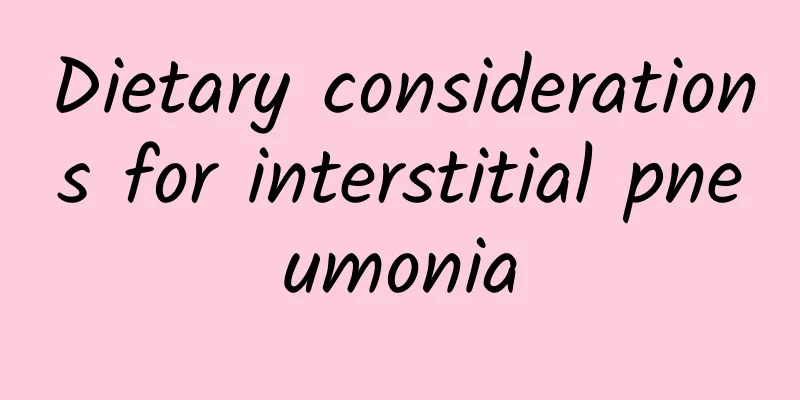How is saliva secretion regulated?

|
Saliva is something that everyone secretes frequently, especially babies who secrete more, while adults usually secrete less. When people taste something delicious, saliva will be secreted involuntarily, and sometimes it will also be secreted when they are nervous. So, how is saliva secretion regulated? Many people are not clear about this. Let’s take a look at the following introduction for the specific situation. The regulation of saliva secretion is completely neural reflex, including unconditioned reflex and conditioned reflex. The normal stimuli that cause unconditioned salivation are mechanical, chemical, and thermal stimulation of the oral cavity by food. Under the influence of these stimuli, the nerve endings (receptors) of the oral mucosa and tongue become excited, and the impulses travel along the afferent nerve fibers (in the lingual nerve, chorda tympani nerve, glossopharyngeal nerve, and vagus nerve) to the central nervous system, and then through the efferent nerves to the salivary glands, causing saliva secretion. The primary center of saliva secretion is in the medulla oblongata, and its higher centers are distributed in the hypothalamus and cerebral cortex. The efferent nerves that innervate the salivary glands are mainly parasympathetic nerves, such as the 9th cranial nerve to the parotid gland and the chorda tympani branch of the 7th cranial nerve to the submandibular gland. Stimulating these nerves can cause the secretion of more saliva but less solid matter. The effect of the parasympathetic nerves on the salivary glands is achieved through the release of acetylcholine from their terminals. Therefore, the use of drugs that antagonize acetylcholine, such as atropine, can inhibit saliva secretion, while the use of acetylcholine or its similar drugs can cause a large amount of saliva secretion. When the parasympathetic nerves are excited, the blood vessels of the salivary glands can also dilate, further promoting the secretion of saliva. It is currently believed that the parasympathetic nerve fibers that cause vasodilation near the salivary glands are peptidergic nerve fibers, whose terminals release vasoactive intestinal peptide. The sympathetic nerves that innervate the salivary glands are peptide nerve fibers. After changing neurons in the superior cervical ganglion, they send out postganglionic fibers that are distributed on the blood vessels and secretory cells of the salivary glands. Stimulating these nerves can cause vasoconstriction and can also induce saliva secretion, but the secretory effect varies with different salivary glands. For example, stimulating the human cervical sympathetic nerves only causes secretion from the submandibular gland but not the parotid gland. When people eat, the shape, color, smell of the food, as well as the eating environment, can form a conditioned reflex and cause saliva secretion. "Looking at the plum to quench thirst" is an example of conditioned reflex saliva secretion in daily life. The saliva secretion of adults usually includes two components: conditioned reflex and unconditioned reflex. How is saliva secretion regulated? Now everyone has a deeper understanding of some knowledge about saliva secretion, which is mainly caused by unconditioned reflex and conditioned reflex. However, we need to remind everyone that excessive or insufficient saliva secretion is abnormal and you need to go to the hospital for a check-up if necessary. |
<<: What kind of tea should I drink to nourish my stomach in summer?
>>: What are the Chinese patent medicines for regulating the spleen and stomach?
Recommend
The most effective way to relax muscles and promote blood circulation
Normally, blood circulation is poor and tendons a...
What causes headaches and eye pain?
Headache is a very common disease. Many people ha...
Self-acupoint pressing method in meridian health care
With the enrichment of material life, many people...
Myrtle wine effects and functions
The main ingredient of myrtle wine is myrtle, whi...
How to treat closed comedones
Many people often get acne on their faces due to ...
How to treat cerebral thrombosis. Traditional Chinese medicine prescriptions have good curative effects
Cerebral thrombosis is a common cardiovascular an...
What is moderate sensorineural hearing loss and how to prevent it?
Many people suffer from moderate sensorineural he...
Baby spitting up water
Because the baby is in the growth period, during ...
How to nourish yin and reduce fire, Chinese medicine recommends a diet recipe for nourishing yin and reducing fire
Due to the hot and dry climate, coupled with lack...
The urethra and vagina are the same
The structure of the human body is a magical subs...
Symptoms of radiation nephritis
In our lives, many people have certain kidney dis...
I have a bloated stomach and always want to urinate.
The water we drink into our bodies every day is a...
How to correct inverted nipples
Inverted nipple, also known as inverted nipple, i...
The efficacy and function of Jiawei Bazhen Yimucao Paste
When we take medicine, we must understand the ing...
Why do gums bleed when brushing? Small problems can indicate big problems
Brushing teeth in the morning and evening is a wa...









